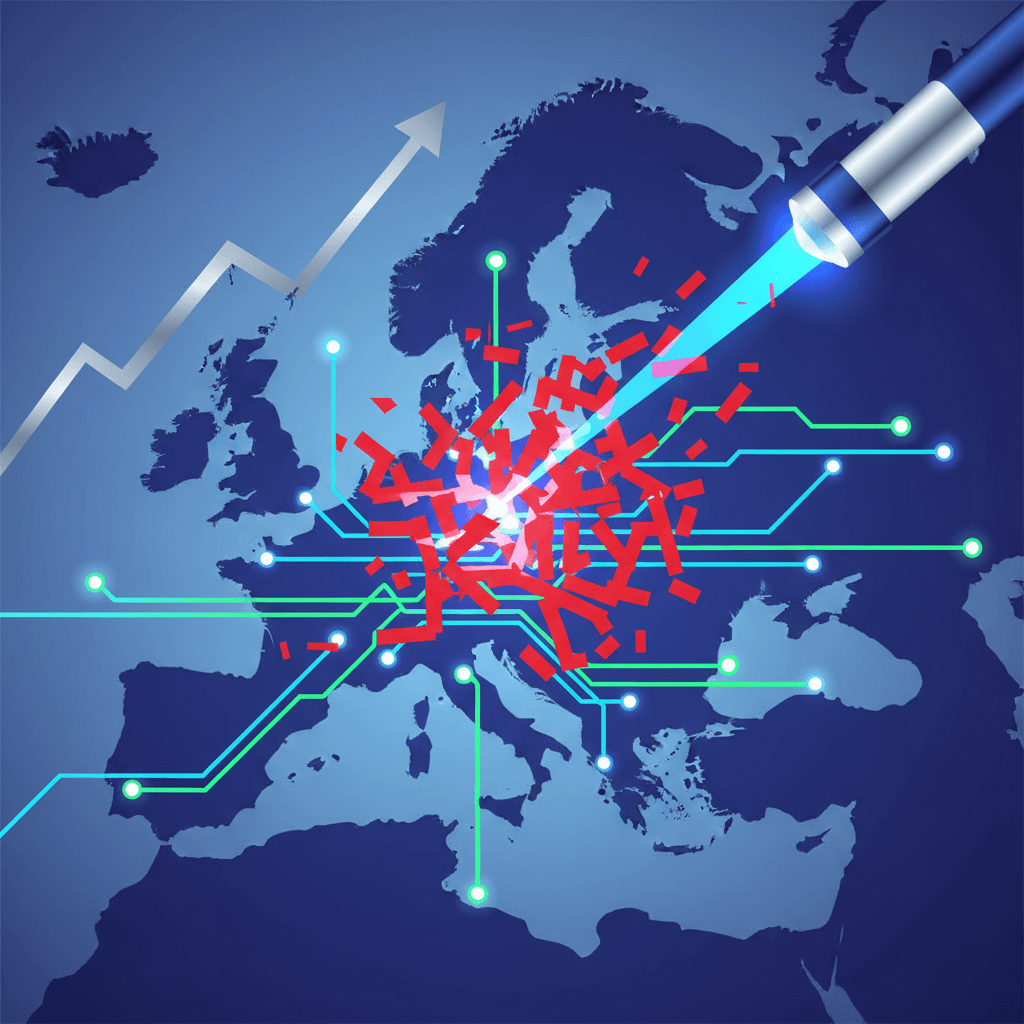OpenAI Pushes Europe: Slash AI Red Tape to Spark Innovation
OpenAI and allies demand less red tape, more harmonization, urging Europe to fast-track AI for global leadership.
October 6, 2025

In a direct address to European policymakers, OpenAI and the startup advocacy group Allied for Startups have released a comprehensive report titled "Hacktivate AI," urging a significant reduction in regulatory burdens and a concerted effort to harmonize digital rules across the continent.[1] The report, unveiled just days before the European Commission is expected to release its own "Apply AI Strategy," presents 20 actionable policy ideas aimed at accelerating the adoption of artificial intelligence and bolstering Europe's global competitiveness in the burgeoning tech sector.[2][3] The initiative stems from a policy hackathon in Brussels that brought together 65 participants, including representatives from EU institutions, national governments, and a wide range of businesses and AI specialists, to generate workable solutions for closing the gap between Europe's AI ambitions and its current reality.[2][3][4]
The core of the "Hacktivate AI" report is a multifaceted approach that touches upon skills development, support for small and medium-sized enterprises (SMEs), and public sector modernization.[3] Among its key proposals is the creation of an "Individual AI Learning Account" to empower workers to acquire new skills for an AI-driven economy.[2][3] For businesses, the report suggests establishing an "AI Champions Network" to specifically encourage AI adoption among SMEs, which are seen as critical to broad-based economic growth but often lag in technological uptake.[2][3] Furthermore, the report calls for a "European GovAI Hub" to facilitate the sharing of resources and expertise for implementing AI within the public sector.[2][3][5] These proposals reflect a clear focus on practical interventions designed to move AI from a conceptual phase into widespread application across all facets of European society and industry.[6]
A central and recurring theme throughout the 20 proposals is the urgent need for simplification and the "Relentless Harmonisation" of regulations to strengthen the EU's Digital Single Market.[2] Proponents of the report argue that a fragmented regulatory landscape creates unnecessary friction for innovators and startups, hindering their ability to scale across the 27-member bloc. This call for cutting red tape aligns with broader concerns that Europe's complex legal frameworks, such as the landmark AI Act, could stifle innovation if not implemented with care.[7][8] The AI Act, the world's first comprehensive law on artificial intelligence, employs a risk-based approach, which, while intended to build trust, also introduces significant compliance obligations that can be particularly burdensome for smaller companies.[9][7] OpenAI's report suggests that easing this burden and creating a more unified market are prerequisites for attracting investment and ensuring European companies can compete effectively on a global scale.[10]
The release of "Hacktivate AI" is strategically timed to influence the EU's forthcoming "Apply AI Strategy," a plan designed to promote the use of homegrown European AI tools and reduce the continent's reliance on technology from the US and China.[11][12] The EU's strategy is expected to position AI as a critical asset for the bloc's security, resilience, and industrial sovereignty, with a particular focus on key sectors like healthcare, defense, and manufacturing.[11][12] While OpenAI's recommendations share the goal of accelerating AI adoption, some observers note that proposals for easier market access and less regulatory friction also closely align with the interests of major technology vendors like OpenAI itself.[1] The report is part of the company's broader engagement in Europe, which includes the release of an "EU Economic Blueprint" and its endorsement of the General-Purpose AI Code of Practice.[2][3]
Ultimately, the "Hacktivate AI" report injects a strong, industry-led perspective into the ongoing debate about Europe's digital future. It highlights a growing consensus that for Europe to become a genuine world-class hub for AI, it must not only legislate but also actively foster an environment where innovation can flourish.[2][13] Research from OpenAI indicates that while AI adoption is increasing in the workplace, it remains uneven, with sectors like IT and finance leading while others lag.[3][14] The report argues that targeted interventions are necessary to bridge this divide and ensure the benefits of AI are widely distributed. As Europe stands at a critical juncture, the proposals from OpenAI and Allied for Startups serve as a clear call to action, emphasizing that a simplified, harmonized, and supportive regulatory environment is essential to translating the continent's ambitious AI strategy into a tangible economic success story.[2][3]
Sources
[2]
[3]
[4]
[6]
[8]
[9]
[10]
[11]
[13]